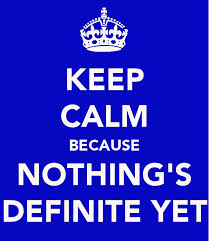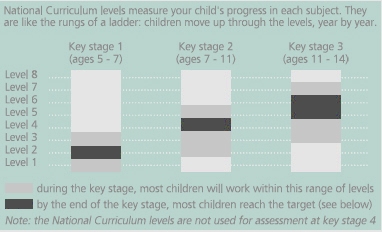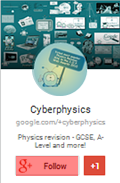The National Curriculum
Keystage 3 & 4 Homepage on the Government Site That is not really of help to anyone who is currently attempting to help a child through their studies. I am therefore informing you on this page of the things that in the past have been considered valid for students to understand and know. It is believed that the new curriculum will be more rigorous than the old one. They will need to know more detail, apply correct terminology and show a deeper understanding of applications and their effets on the world that their predecessors did. If there was any criticism of my notes (and hence the content of this site) in the past it was that I expected my pupils to have a deeper understanding and more detailed knowledge than was required by examiners. I therefore feel that my site will not need much updating in September 2013. What did we have to teach them? Well, we had to teach physics (see below)- but that was not all. Put simply we also had to help develop their: What PHYSICS do we have to teach them?
But read in conjuction with the attainment taget levels and you realised just how much depth you have to deliver. No longer was there a national examination to assess their level - it was down to teacher assessment of each child's level... but a child needed to be studying physics just as rigorously as before to attain high levels. In order to help schools develop their teaching schemes the government set up a website for the National Strategies, publishes a website section on APP (Assessing Pupils' Progress) and a downloadable booklet on ICT in Science. These gave more detailed information about what was expected to be taught at each stage - even in each year and caused a lot of 'discussion' amongst teachers on how best to implement them, fear on inspectors not feeling the school was 'doing it right' and reams of wasted paper (and teacher hours) in interpreting the wordy sources. They have now been removed, which is a good thing. In my (not so) humble opinion it would have been simpler to have given teachers
Teachers could use these to set standards across the country and cut out having to read and interpret all of the 'guff' the Government provided in multiple places. The National Curriculum was supposed to ensure that every child was taught the basics that were delivered in 'good schools' but by the end it made the teaching of science far more variable in standard than it used to be before the National Curriculum was introduced. It also 'padded science content out' with 'applications' (usually too simplistic to be of any use) and waffle on the implications of scientific advancements that would have been far better suited in a child separatly studying the impact of science on culture, politics and the environment (locally, nationally and globally) when they were a bit older and able to understand the conflicting views and attitudes. At WGHS we always dealt with the requirements of KS3 with the needs at KS4 in mind too... The new push in science was away from simple knowledge acquisition and recall towards an understanding of how science impacts on society and the problems associated with scientific research and progress... but they still needed to know the basic terms and methods... I have a feeling the new 'new push' will be in the opposite direction.... let's hope it is not too far the other way.. -------------------------------------------------------- At KS4 - which had to start in Y9 at WGHS because of time constraints - we delivered the AQA GCSE Physics. The examination boards have to devise syllabuses which meet the requirements of the National Curriculum for Key Stage 4. You therefore do not have to worry about it. You just need to know which syllabus the school is deleivering as there are subtle differences between them. All exam boards have extensive materials on line for you to use - the most important of all being the syllabus.
|
Follow me...
|


 The National Curriculum programmes of study for science at key stages 3 and 4 were disapplied with effect from 1 September 2013 and are no longer statutory. This means that schools are free to develop their own curriculums for science that best meet the needs of their pupils, in preparation for the introduction of the new National Curriculum from September 2014.
The National Curriculum programmes of study for science at key stages 3 and 4 were disapplied with effect from 1 September 2013 and are no longer statutory. This means that schools are free to develop their own curriculums for science that best meet the needs of their pupils, in preparation for the introduction of the new National Curriculum from September 2014.



